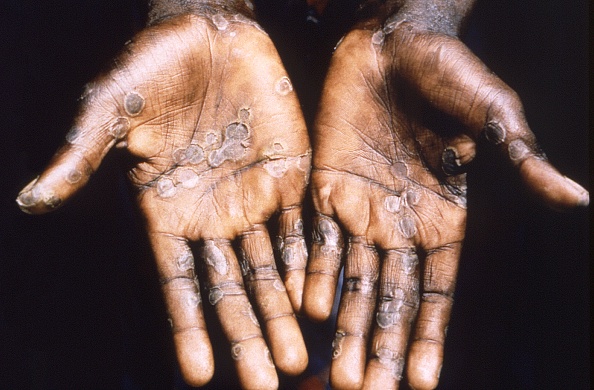The monkeypox virus is mutating at a far faster rate than previously expected amid the global outbreak, according to a new study.
The rare disease that naturally circulates in monkeys and rodents is catching more attention in the medical community as scientists are eager to contain the situation before it could get worse.
Since its detection outside Africa in May, the virus has spread to 48 countries and infected more than 3,500 people. The rapid transmission is believed to be a product of the “accelerated evolution” of the virus.
A new study published in the journal Nature Medicine examined the mutations of the virus. The research team said it was unlikely for viruses like monkeypox to gain more than one or two mutations each year, but the strain responsible for the outbreak is doing more than that.
After collecting and examining DNA from 15 monkeypox samples, the researchers found that the real mutation of the virus was six to 12 times higher than previously thought. The finding points to an “ongoing viral evolution” and makes sense of the unprecedented speed of new infections.
Historically, the virus is transmitted by close skin contact with open skin lesions, contaminated material or respiratory droplets and bodily fluids of patients. But things may have changed along the way since the rate of the disease spread has gotten faster.
Last month, the Centers for Disease Control and Prevention (CDC) issued a warning saying members of the LGBTQ community should take caution since they appear to be at a higher risk for monkeypox. Though the condition is not a sexually transmitted disease, experts said the virus can be passed through sexual intercourse and intimate contact based on their initial findings amid the outbreak.
The mutations identified by researchers suggest that the virus evolved after making contact with the human immune system. The strain seemed to have picked up many mutations along the way as it spread from person to person in a short span of time.
The monkeypox virus strains come from two lineages, the West African and Congo Basin clades, as per STAT. The two differ in terms of their fatality rates. The former has a 1% fatality rate, while the latter has an estimated 10%. The present outbreak appears to be driven by the West African clade.
The last time monkeypox caused an outbreak in the U.S. was way back in 2003, when 71 people caught the virus after a shipment of Gambian pouched rats from Ghana reached Texas. The virus was passed on to local prairie dogs before being detected in humans, according to Live Science.















